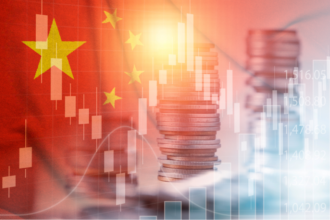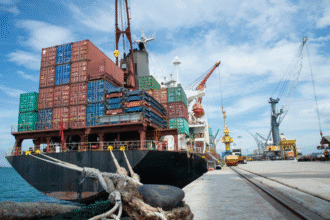The UK government is working harder than ever to help firms at home and get better deals in overseas commerce in today’s unstable global economy. The UK has just revealed a new foreign trade strategy that aims to make it easier for exporters, protect them from unfair competition, and make the country a greater player in global commerce.
- What is the goal of the UK’s international trade policy?
- How Will the UK Help Exporters Compete Around the World?
- Why do we need defensive trade measures?
- What does the De Minimis Rule do?
- How does the trade policy fit into the bigger picture of the economy?
- What Should UK Businesses Do Right Now?
- In conclusion
This plan comes at a very important time, as firms deal with the effects of new US tariffs, more Chinese exports, and changing trade connections between countries. The government wants to help UK businesses not just stay in business but also grow through overseas commerce by giving them money and making the rules clear.
What is the goal of the UK’s international trade policy?
The main goal of the UK’s international trade policy is to make sure that UK businesses can grow around the world without being hurt by cheap foreign goods. It uses both offensive and defensive techniques to keep trade going.
Jonathan Reynolds, the Secretary of Business, stressed the government’s support for British businesses by declaring, “This plan will keep British businesses safe.” His comment shows that he is taking a more aggressive approach to trade, one that is focused on both opportunity and strength.
The policy puts tangible initiatives to increase trade flows at the top of the list. These steps include making it easier to follow international standards and cutting down on red tape. The government also wants to give exporters personalized assistance and access to financial tools that would help them get to new markets faster and with more confidence.
How Will the UK Help Exporters Compete Around the World?
One of the main goals of the policy is to help UK exporters. Businesses will be able to grow their operations in other countries with less risk, thanks to more government funding alternatives. Exporters will also get better help with complicated trade deals, certification processes, and regulatory hurdles.
This policy is based on recent diplomatic triumphs. The UK has finally reached a free trade agreement with India after years of talks. Also, better trade conditions with the US are a big step forward, especially since President Trump’s protectionist program has been revived.
The UK foreign trade strategy wants to allow firms the freedom to grow beyond domestic demand by reducing barriers to market access. Services, which are already a major export strength for the UK, will also be a big priority. This is an unexplored chance for the government to grow even more, especially in the areas of digital services, banking, and education. Read another article on the Trump Trade Agreement UK
Why do we need defensive trade measures?
It’s crucial to establish new export prospects, but it’s just as important to defend UK enterprises from unfair tactics. People are becoming more worried that items created in other countries, especially Chinese electric cars and extra steel, could be sent to UK markets after being blocked from the US because of increased taxes.
The UK doesn’t charge substantial tariffs on Chinese EVs right now, but the EU does. Without this protection, local carmakers might be able to be undercut by cheaper imports. Also, current protections against inexpensive steel imports will end in 2026, which makes many worry that there will be a lot of steel coming into the country that could upset the domestic market.
The goal of the UK’s foreign trade policy is to make competition fairer by changing the rules for imports and maybe raising protective tariffs. This would let UK producers compete on quality and value instead of being pushed out by overseas competitors who are only interested in pricing.
What does the De Minimis Rule do?
The misuse of the “de minimis” criterion is a big problem that people are paying a lot of attention to. The provision was meant to let people buy cheap items from other countries without having to pay taxes. However, certain corporations have been taking advantage of it more and more. These companies utilize it to avoid paying UK import taxes, which gives them an unfair edge against vendors in the UK.
Shein and Temu are two companies that have been named as major beneficiaries of this loophole. Not only does their ability to sell a lot of cheap goods without paying import customs affect UK shops, but it could also be dangerous for customers.
Andrew Opie of the British Retail Consortium said, “There aren’t enough checks and balances on these kinds of goods coming into the country, which puts consumers at risk of buying things that don’t meet the UK’s high standards and retailers at risk of losing business to people who sell these kinds of goods.”
The UK wants to fix these gaps in its foreign trade policy by making customs enforcement stricter and looking at the tax breaks that imported goods get. These improvements should make things fairer for UK merchants and raise the standards for product safety.
How does the trade policy fit into the bigger picture of the economy?
The government has started a larger economic plan that includes this trade push. A 10-year industrial strategy came out earlier this year. One of the best things about it was that it decided to decrease energy expenses for thousands of businesses by not making them pay specific green taxes.
After raising taxes, including greater National Insurance payments for companies, officials now seem to be focusing on easing the financial burden on businesses. They think that this set of plans will show that they are serious about long-term economic growth and productivity.
All of these steps point to a change toward a more proactive, business-friendly environment. The government wants to develop a consistent economic framework that fosters innovation, job growth, and global competitiveness by combining trade and industrial policy.
What Should UK Businesses Do Right Now?
It’s time for UK firms to think about how these developments can help them. Companies should first look at the several kinds of government help that are available through the UK’s foreign trade strategy. These include financial tools, export advice, and initiatives that help businesses get into new markets.
Companies should also look at their supply chains again, look into working with companies in other countries, and make sure they follow international trade rules more strictly. These initiatives will help them stay competitive and make the most of the UK’s new trade rules.
Businesses that move quickly and follow national policy will be better off in the long run when alliances change and tariffs are hard to forecast.
In conclusion
The UK’s international trade policy is a smart and timely response to problems with trade around the world. It gives UK firms the tools they need to succeed in a world that is becoming more competitive by focusing on boosting exports and protecting home industries.
This policy isn’t just a quick fix; it’s a plan for long-term growth. UK businesses may stay in the global market for years to come by taking advantage of new opportunities and adjusting to the changing trade landscape.








